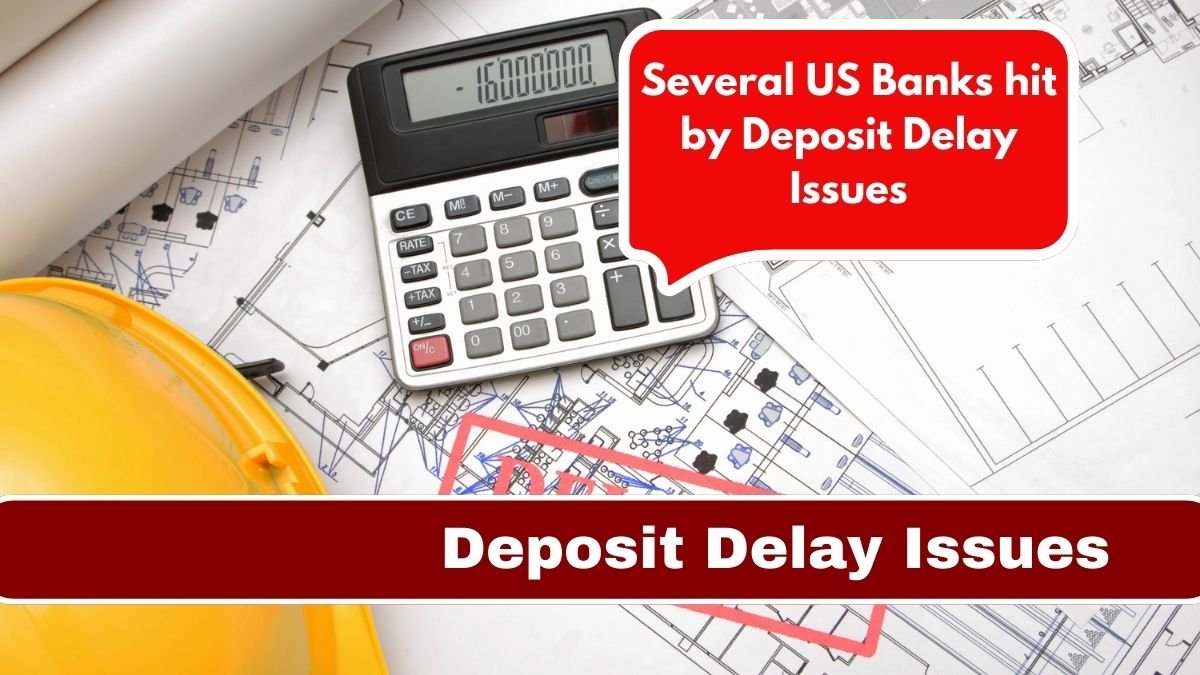We’ve all experienced it—waiting for a deposit to hit our account, whether it’s from your paycheck, a refund, or even a simple transfer. Most of the time, these transactions happen quickly, but lately, a few banks in the United States have faced some significant delays in processing deposits. So, what’s causing these delays, and how does it affect you?
The Deposit Delay Dilemma
Imagine this: You’ve got bills to pay, maybe a grocery run to make, or plans for the weekend, but your paycheck hasn’t been deposited into your account yet. Frustrating, right? You’ve checked, double-checked, and even triple-checked. So, what’s the deal? Several major banks in the U.S. have recently faced technical issues that led to delayed deposits. This isn’t something that usually happens, and it’s got a lot of people wondering if their funds are secure.
Why Are Deposits Delayed?
The reasons behind deposit delays can vary, but the most common causes often boil down to a few factors. Let’s break it down:
- Technical Glitches
Banks use complex systems to process millions of transactions every day. Sometimes, these systems can experience glitches. These glitches can cause delays in processing incoming funds or affect how quickly they show up in your account. - High Volume of Transactions
Certain times of the year, like the holidays or tax season, bring in a higher volume of transactions. When there are more deposits being made at once, it can overwhelm the system, leading to delays. - Banking Infrastructure Issues
Some banks still use older banking infrastructure that isn’t as fast or efficient as more modern systems. These outdated systems can struggle when processing large numbers of transactions. - Security Measures
Banks must also ensure the security of every transaction. If there’s any suspicious activity or if the system flags something as unusual, the deposit might be delayed as part of the security checks. - Bank-Specific Issues
Sometimes, the problem isn’t at the global or national level but specific to a certain bank. A bank could have internal issues—whether it’s staff shortages, processing problems, or simply a mistake—that cause delays.
Which Banks Are Affected?
The deposit delays have affected various banks, but they’re most commonly reported at large financial institutions, such as those with a wide customer base. Banks like Wells Fargo, Bank of America, and Chase have all been mentioned as experiencing deposit delays in recent months.
How Do These Delays Affect You?
When a bank delays a deposit, the immediate concern is obvious—your funds are temporarily inaccessible. But the impact can go beyond just an inconvenience. If you rely on that paycheck to cover essential expenses like rent or utilities, a delayed deposit can throw off your whole budget.
And it doesn’t stop there. If you’re trying to make an important purchase or send money to someone, you may find that your account balance doesn’t match what you expected, which could lead to overdraft fees or missed opportunities.
What Can You Do About It?
If you’re facing a deposit delay, here’s what you can do:
- Check with Your Bank: Contact customer service or check your bank’s mobile app to see if there are any updates on the delay.
- Keep Track of Deposits: Always keep a close eye on when you expect funds to arrive. If it’s late, make sure to report the issue as soon as possible.
- Use Backup Plans: If the deposit delay is impacting your ability to pay bills or make payments, consider using backup funding options like credit cards or personal loans—just be sure to pay them off once your deposit clears.
- Stay Informed: Some banks are working to upgrade their systems to avoid delays in the future. Staying informed about these changes can help you avoid surprises down the line.
How Long Do These Delays Last?
Most of the time, the deposit delays are short-lived, lasting anywhere from a few hours to a couple of days. However, in rare cases, they can stretch longer, especially if there’s a bigger issue at play. If a delay lasts for more than a few days, it’s crucial to follow up with your bank and understand the reason behind the holdup.
Table: Common Reasons for Deposit Delays
| Cause | Explanation |
|---|---|
| Technical Glitches | Errors in banking systems causing delays in processing deposits. |
| High Transaction Volume | Busy periods that overwhelm the system with too many deposits to process at once. |
| Outdated Banking Infrastructure | Older systems that can’t handle large volumes of deposits efficiently. |
| Security Checks | Suspicious activity leading to a temporary hold on funds for safety reasons. |
| Bank-Specific Issues | Internal errors or issues within the bank itself causing the delay. |
Conclusion
Deposit delays can be a real headache, especially when you’re relying on those funds to cover your expenses. Whether it’s a temporary glitch or a more significant problem with a bank’s system, understanding the causes and knowing how to deal with them can make all the difference. If you’re dealing with a delay, keep checking with your bank and consider using other payment methods until everything clears up.
FAQs
Why are some bank deposits delayed?
Bank deposits can be delayed due to technical glitches, high transaction volumes, or security checks.
How long do deposit delays last?
Usually, deposit delays last from a few hours to a couple of days, but in rare cases, they may take longer.
Can a deposit delay affect my bill payments?
Yes, a delayed deposit could impact your ability to pay bills on time, leading to late fees or overdrafts.
What should I do if my deposit is delayed?
Contact your bank, track your deposit, and consider backup payment methods if necessary.
Will this happen again?
Banks are working to upgrade their systems, but occasional delays may still occur, especially during busy times.



